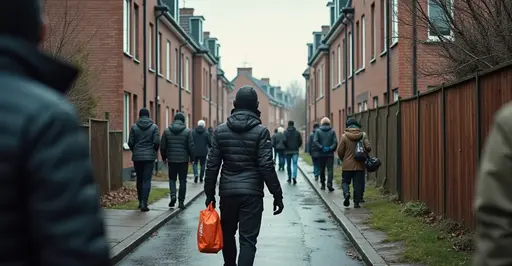
Denmark's Radical Social Experiment
In Aarhus' Gellerup district, 60-year-old bus driver Ezzeddine Azzam refuses to vacate his apartment despite demolition orders. As the last remaining resident, Azzam stands against Denmark's 'Parallel Societies Act' - commonly called the 'ghetto law'. This 2018 legislation targets neighborhoods where over 50% of residents have non-Western backgrounds.
How the Law Works
The law identifies disadvantaged areas using four criteria: income levels, unemployment rates, education attainment, and criminal records. Districts failing on two metrics must reduce social housing by demolishing apartments and replacing them with private homes. The goal: attract wealthier Danes to create mixed communities.
Controversial Methods
Kristian Würtz, director of a social housing organization, defends the policy: "Gellerup suffered high unemployment and school dropouts. This impacts all society." But critics like analyst Gunvor Christensen counter: "Research shows forced relocations don't reduce inequality." Some municipalities even paid residents with criminal records to move.
Legal Challenges and Identity
The European Court of Justice will rule on the law's legality after summer 2025. An advocate general already deemed it discriminatory. Azzam, a Danish citizen for 36 years, questions: "When am I Danish enough? My children work and study here." His stand represents thousands affected by this social experiment.

 Nederlands
Nederlands English
English Français
Français Deutsch
Deutsch Español
Español Português
Português







